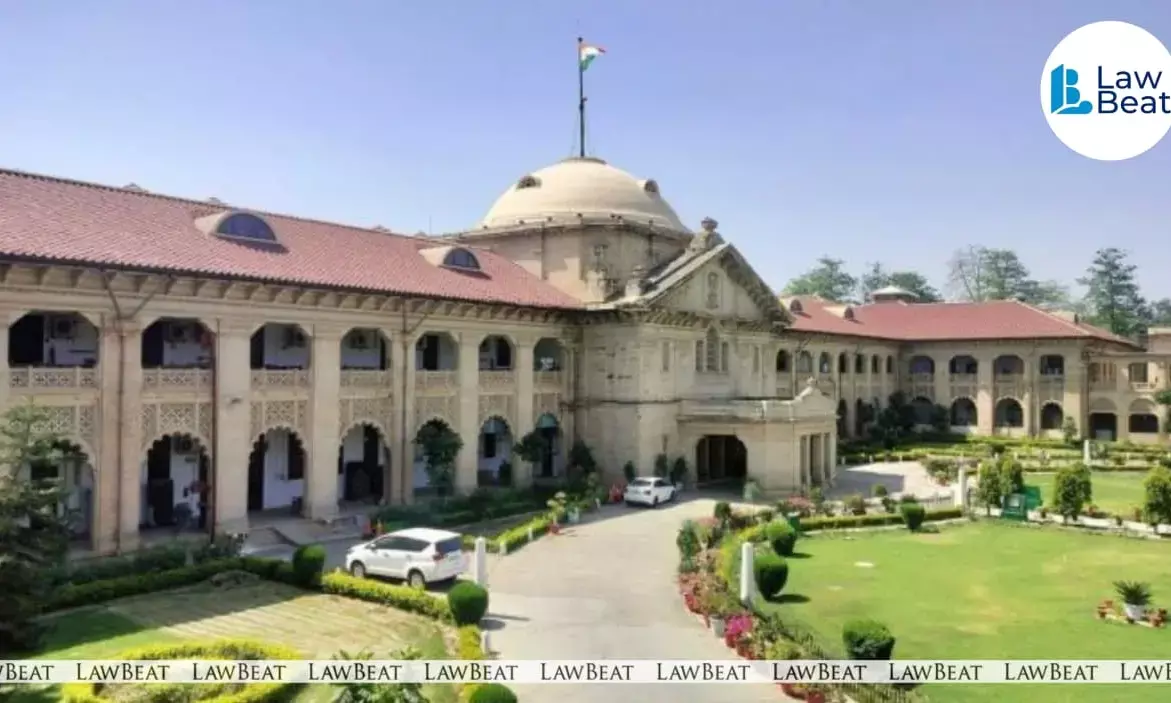Forcing Wife to Testify Against Husband Is 'Harassment': Allahabad HC Quashes POCSO Case Lodged by Girl's Father

Allahabad High Court quashes POCSO case, noting that the girl, now accused's wife, denied kidnapping allegations levelled by her father
The Allahabad High Court recently quashed a kidnapping and POCSO case against a Farrukhabad man, saying that making the girl who is now his wife, repeatedly appear in court to secure the acquittal of her own husband, despite her sworn denial of the allegations would amount to harassment, exposing her to needless stigma and indignity.
"Compelling a lady in such matters to visit court premises for months and years for the purposes of getting her ow husband acquitted where he is facing threat of punishment for doing some wrong with his wife which she does not admit, would be an instrument of harassment," court said.
The bench of Justice Kshitij Shailendra invoked the court’s inherent powers under Section 528 of the Bharatiya Nagarik Suraksha Sanhita (BNSS) to hold that continuing the prosecution would defeat the ends of justice.
An FIR was lodged on April 23, 2024, by the girl’s father, alleging that his daughter had been abducted by the applicant, Ashwani Anand. The police investigated the allegations and filed a charge sheet on September 30, 2024, leading to a cognizance order passed on April 8, 2025. The offences alleged were under Sections 363, 366 IPC and Section 11/12 of the Prevention of Children from Sexual Offence Act, 2012 (POCSO Act).
However, in her statement under Section 161 CrPC, given on August 16, 2024, the girl denied being abducted and said she had left home voluntarily without informing her parents. She stated that she lived in a girls’ PG in Ghaziabad and did not stay with the applicant. She also denied any physical relationship between them. In her subsequent judicial statement under Section 164 CrPC (now Section 183 BNSS), she said she was 20 years old, though her Aadhaar card recorded her age as 17.
Court noted that the applicant and the girl married on June 23, 2025, after she attained the age of majority, and registered the marriage the next day under the Uttar Pradesh Marriage Registration Rules, 2017. A marriage certificate had also been placed on record. The girl submitted an affidavit supporting the applicant’s plea for quashing the proceedings and reiterating that the allegations in the FIR were false.
The State opposed the plea, arguing that offences under the POCSO Act are non-compoundable and constitute crimes against society, and therefore should not be quashed merely on the basis of compromise or subsequent marriage. It relied on a 2025 Supreme Court decision in K. Kirubakaran, which had refused to treat marriage between the accused and the victim as a ground to quash POCSO charges.
Justice Shailendra distinguished that judgment, pointing out that it arose after conviction, while the present case was at a pre-trial stage with cognizance alone having been taken. Court also highlighted that the Supreme Court itself had clarified that Kirubakaran should not be treated as a precedent. Instead, court referred to multiple Supreme Court decisions, including K. Dhandapani, Mafat Lal, Dasari Srikant, and Mahesh Mukund Patel, where proceedings or convictions were quashed in similar circumstances after the prosecutrix married the accused and expressed no desire to prosecute.
Court stressed that when a victim makes a sworn statement denying the allegations and affirming her voluntary conduct, compelling both parties to undergo a lengthy trial merely to record a hostile-witness testimony would be “an irony of fate” and a waste of judicial resources.
It observed that forcing a woman to repeatedly come to court to secure the acquittal of her own husband would amount to “an instrument of harassment” and ignore the practical realities of the justice system.
Holding that the High Court must not impose unnecessary restrictions on its inherent powers, the judge said the task of constitutional courts is to secure substantive justice rather than mechanically prolong criminal proceedings.
In the present case, court held that the marriage, the girl’s majority, her denial of allegations on oath and her support for quashing the case made it a fit case for intervention under Section 528 BNSS.
Court therefore allowed the application and quashed the charge sheet, cognizance order and entire proceedings pending against the applicant.
Case Title: Ashwani Anand vs State of UP and 3 others
Order Date: November 21, 2025
Bench: Justice Kshitij Shailendra
